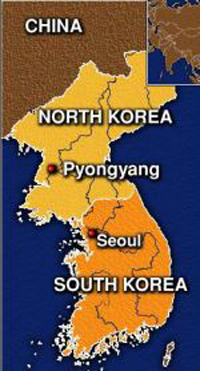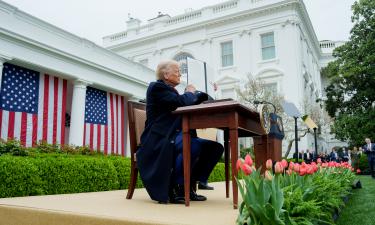Inter-Korean talks after missile launch
The talks underscored the difficulty in dealing with the recalcitrant communist regime.

The North even argued that its "songun," or "army-first," policy of strengthening its military gives protection to South Korea too - a claim rejected immediately by the South, according to Lee Kwan-se, a Unification Ministry official.
The South also warned the North against additional missile launches, saying if Pyongyang does so that regional tensions would spike in an uncontrollable way and inter-Korean relations would be hurt further, Lee said.
North Korea didn't respond. Instead, it repeated a request for 500,000 tons of rice, proposed meetings of families separated by the heavily armed border and renewed a demand that the South stop military drills with the U.S., Lee said.
After the missile tests, the South said it would withhold rice and fertilizer aid to North Korea. But the country stopped short of saying that directly to the North Koreans in Wednesday's session, according to Lee.
The missiles fired last Wednesday created a major new challenge for the South's policy of using economic and political engagement to pacify the reclusive communist regime.
Seoul's reaction to the tests was relatively mild, compared to the backlash from other nations such as Japan and the United States. However, the South said the launches were provocative and decided to withhold aid shipments to the North. It also rejected the North's previously offered proposal of lower-level military talks, the AP reports.
South Korea's foreign minister said Wednesday that Seoul agrees with China's call for informal talks to resolve the North Korean nuclear impasse and opposes sanctions on the North for last week's missile tests.
Subscribe to Pravda.Ru Telegram channel, Facebook, RSS!





